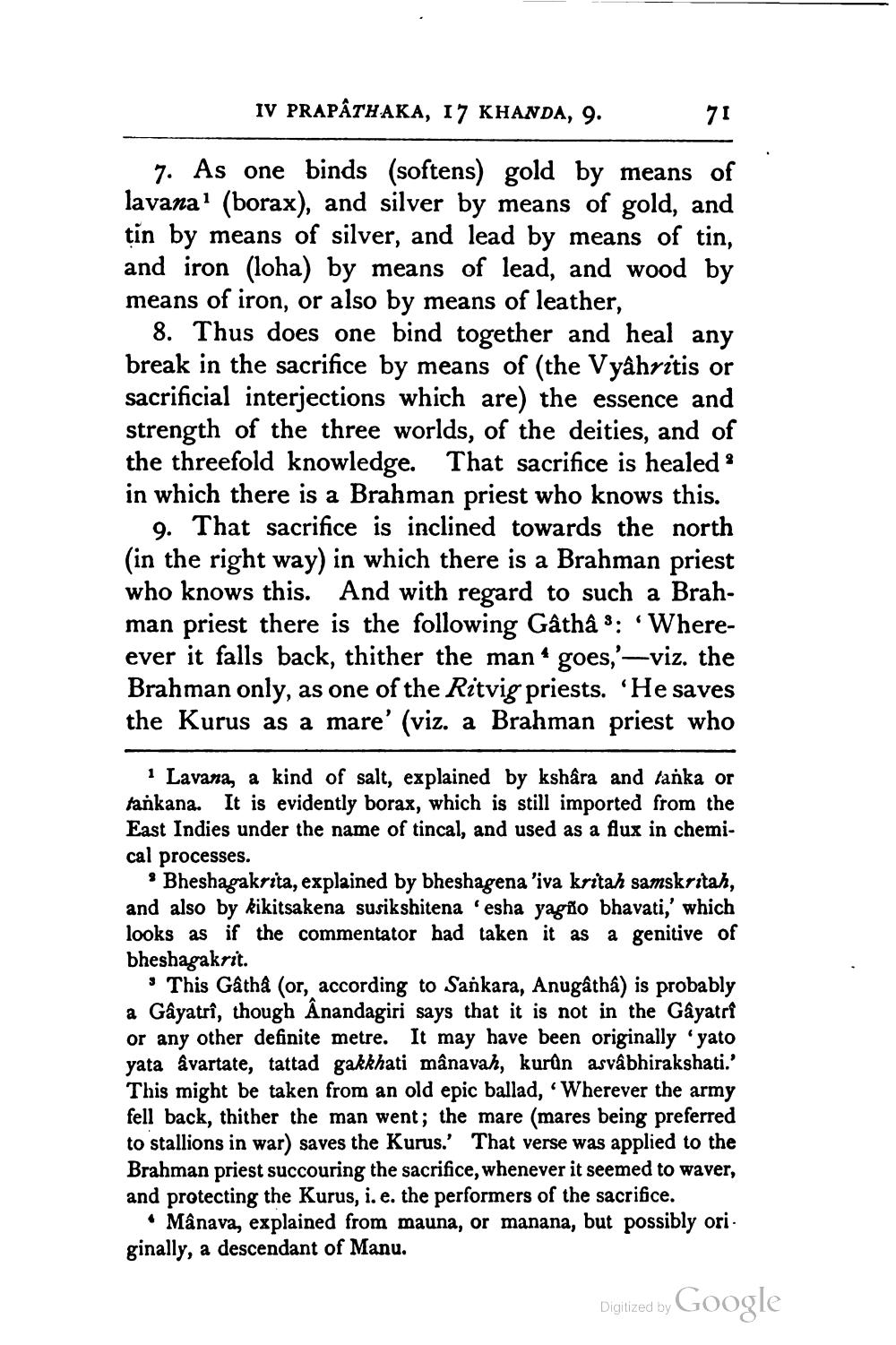________________
IV PRAPÂTHAKA, 17 KHANDA, 9.
71
7. As one binds (softens) gold by means of lavana' (borax), and silver by means of gold, and tin by means of silver, and lead by means of tin, and iron (loha) by means of lead, and wood by means of iron, or also by means of leather,
8. Thus does one bind together and heal any break in the sacrifice by means of (the Vyâhritis or sacrificial interjections which are) the essence and strength of the three worlds, of the deities, and of the threefold knowledge. That sacrifice is healed : in which there is a Brahman priest who knows this.
9. That sacrifice is inclined towards the north (in the right way) in which there is a Brahman priest who knows this. And with regard to such a Brahman priest there is the following Gâthâ 3: Whereever it falls back, thither the man* goes,'—viz. the Brahman only, as one of the Ritvig priests. 'He saves the Kurus as a mare' (viz. a Brahman priest who
1 Lavana, a kind of salt, explained by kshara and tanka or tankana. It is evidently borax, which is still imported from the East Indies under the name of tincal, and used as a flux in chemical processes.
Bhesha gakrita, explained by bheshagena 'iva kritah samskritah, and also by kikitsakena susikshitena 'esha yagão bhavati,' which looks as if the commentator had taken it as a genitive of bheshagakrit.
• This Gâthå (or, according to Sankara, Anugâthâ) is probably a Gâyatrî, though Ânandagiri says that it is not in the Gayatri or any other definite metre. It may have been originally yato yata kvartate, tattad gakkhati mânavah, kurûn asvabhirakshati.' This might be taken from an old epic ballad, Wherever the army fell back, thither the man went; the mare (mares being preferred to stallions in war) saves the Kurus.' That verse was applied to the Brahman priest succouring the sacrifice, whenever it seemed to waver, and protecting the Kurus, i.e. the performers of the sacrifice.
• Mânava, explained from mauna, or manana, but possibly originally, a descendant of Manu.
Digitized by Google




